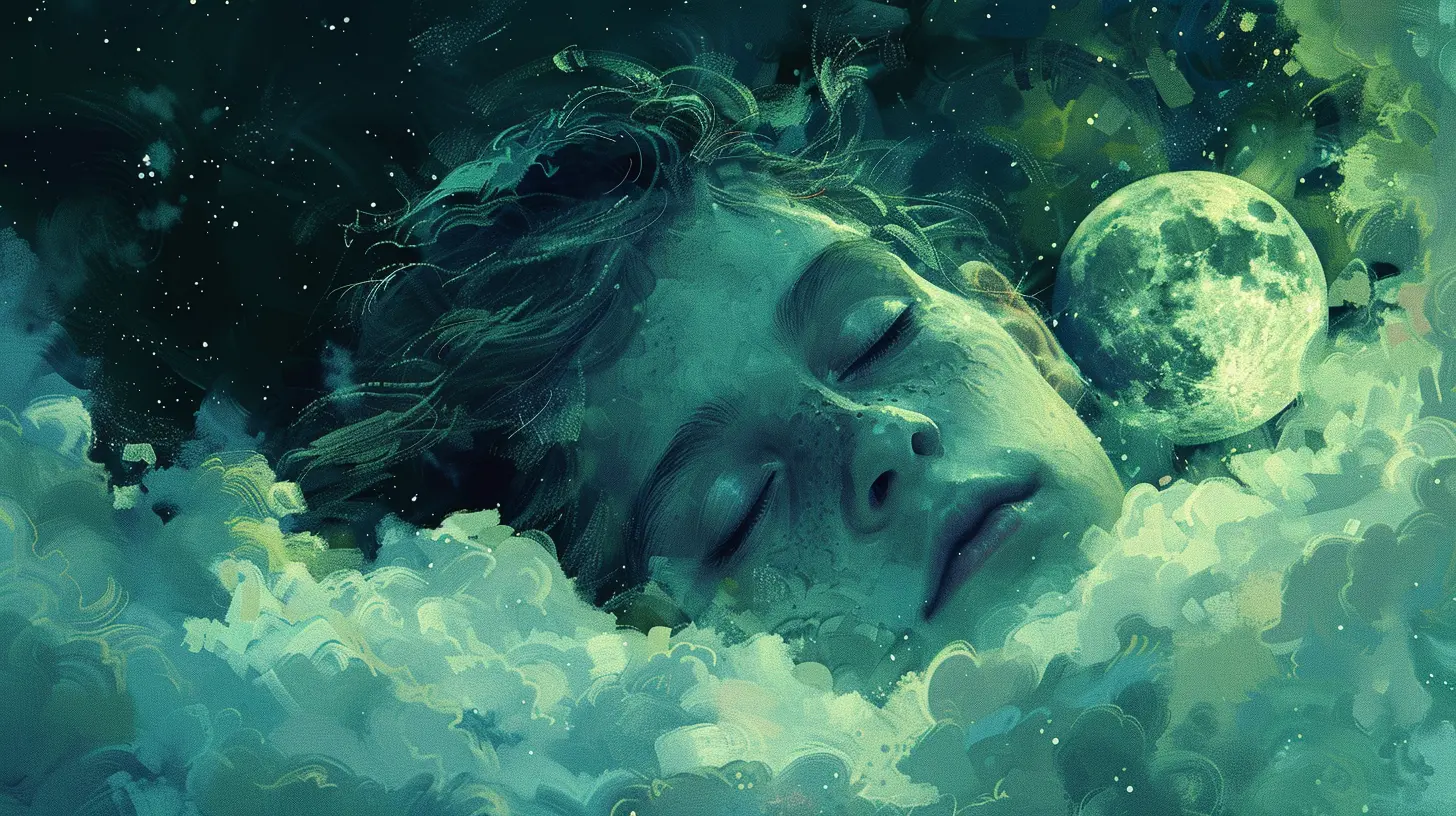The Importance of Sleep in Bipolar Disorder Management
9 September 2025
If there’s one underrated superpower in the world of mental health, it’s sleep. Yep, that thing we all know we need but often forget to prioritize. For those managing bipolar disorder, sleep isn't just about feeling rested—it's a cornerstone of emotional stability. In fact, sleep can be a game-changer when it comes to managing the ups and downs of bipolar disorder.
Let’s dive into why sleep matters so much, how it interacts with bipolar symptoms, and what you can do to protect your rest like it’s the crown jewel of your wellness strategy.
Understanding Bipolar Disorder: A Quick Refresher
Before we jump into the deep end, let’s get on the same page about what bipolar disorder is.Bipolar disorder is a mental health condition characterized by extreme mood swings—think emotional rollercoaster. You’ve got the highs (mania or hypomania) that can feel like you’re invincible, full of energy, or unusually irritable. Then there are the lows (depression), where everything feels heavy and unmanageable.
But here’s the twist: these mood episodes aren’t just emotional—they’re tightly linked to physical patterns, and one of the biggest ones is sleep.
The Sleep-Bipolar Connection: Not Just a Coincidence
So, what's the deal with sleep and bipolar disorder? Why is sleep such a big deal?Think of sleep as the thermostat for your brain. It helps regulate your emotional temperature. When sleep is thrown off—too little or too much—it can push the brain into overdrive or shutdown mode. For people with bipolar disorder, this imbalance can be a recipe for triggering either mania or depression.
Sleep Deprivation and Mania
A sudden burst of energy after skipping sleep might sound kind of cool (hello, productivity!), but for someone with bipolar disorder, it can be a major red flag.Missing even a few hours of sleep can trigger manic or hypomanic episodes. During mania, a person often sleeps less, but here’s the catch: the lack of sleep isn't a symptom—it can also be a trigger for mania.
It’s like throwing fuel on a fire. The less sleep, the more likely your mood spirals upward in a way that’s tough to control.
Oversleeping and Depression
On the flip side, too much sleep can point to or even worsen depression. People with bipolar depression often experience hypersomnia—sleeping 10+ hours a night and still feeling exhausted.While a good night’s sleep is usually refreshing, oversleeping in bipolar depression may signal a downward spiral. This kind of deep, extended sleep can drag someone deeper into the fog of depressive symptoms.
Circadian Rhythms: Your Brain’s Internal Clock
Let’s talk about circadian rhythms for a sec. You can think of them as your internal clock that runs on roughly a 24-hour cycle. They guide your sleep-wake cycle, body temperature, and even hormone release.Guess what? In bipolar disorder, this internal clock tends to be out of sync.
Irregular circadian rhythms have been found in individuals with bipolar disorder, and it’s not just a coincidence. Disruptions in the sleep-wake cycle can worsen mood symptoms, leading to episodes. People with bipolar disorder are often more sensitive to these disruptions—like jet lag, shift work, or even staying up late on weekends.
Your brain craves predictability. Regular sleep helps anchor your body’s rhythms and stabilize your moods.
Why Sleep Hygiene is Your Secret Weapon
Alright, now the big question: how do we use sleep as a shield to help manage bipolar disorder?Enter: sleep hygiene. No, we’re not talking about brushing your teeth before bed (though please do that!). Sleep hygiene refers to the habits and environment that help you get quality sleep.
Here’s how you can level up your sleep hygiene game:
1. Stick to a Sleep Schedule
Go to bed and wake up at the same time every day—even on weekends. Trust me, your brain will thank you for the consistency.2. Create a Calm Sleep Environment
Dim the lights, keep the room cool, and make your bed a peaceful zone. No laptops, TV, or phone screens right before you snooze.3. Avoid Stimulants and Heavy Meals Late in the Day
Caffeine after 3 p.m.? Probably a bad idea. That late-night pizza binge? Also not great for deep sleep.4. Wind Down with a Routine
Do something relaxing before bed. Read a book, take a warm shower, do some slow breathing—whatever helps your brain shift into sleep mode.5. Track Your Sleep Patterns
Keeping a sleep diary or using sleep tracking apps can give you insights into how your mood and sleep are connected. Knowledge is power, right?Medications, Sleep, and Bipolar Disorder
Medications are often part of managing bipolar disorder, and guess what? Many of them affect sleep, too.Mood stabilizers, antipsychotics, antidepressants—they can all have different effects on your sleep cycle. Some make you drowsy, while others may keep you up. That’s why it's so important to talk openly with your psychiatrist about how your meds are impacting your sleep.
Sometimes, small adjustments to dosage or timing can make a world of difference. Don't suffer in silence—your sleep is too important.
Sleep and Bipolar Disorder in Real Life: The Daily Struggle
Let’s get real for a second. Managing sleep with bipolar disorder isn’t always easy. Life happens. Stress, responsibilities, and unexpected events can throw your sleep schedule into chaos.Maybe you’re a parent waking up throughout the night. Or you're working night shifts to pay the bills. Or traveling for work and stuck in different time zones.
It’s okay. Perfection is not the goal. Awareness and effort are what matter most.
Learning your sleep triggers and making adjustments where you can is part of your long-term strategy. Think of it like fine-tuning an instrument—sometimes you’ll need to recalibrate.
The Role of Therapy and Support Systems
Sleep isn’t an isolated issue. It’s tied to your emotional, physical, and social world. That’s why therapy can be super helpful.Cognitive Behavioral Therapy for Insomnia (CBT-I) has been shown to help those with mood disorders regulate their sleep better. Even regular talk therapy or support groups can help reduce anxiety and intrusive thoughts that keep you up at night.
Talking it out helps. Knowing you’re not the only one struggling with sleep and bipolar disorder? Game-changing.
Building a Sleep-First Lifestyle
It might sound odd to say, but if you're managing bipolar disorder, you’ve got to treat sleep like it's sacred.Not just a "nice-to-have"—but a nonnegotiable. Like water to a plant or oil in an engine. Without good sleep, everything else wobbles.
So, don’t feel guilty for prioritizing it. Say no to late-night outings if it throws off your schedule. Put your mental health front and center. The more consistent your sleep, the steadier your moods.
Final Thoughts
Managing bipolar disorder is complex, no doubt about it. But sleep? That’s one area where you have some control. And it makes a huge difference.Think of sleep as your foundation. Sure, medications, therapy, and social support are all vital—but without a solid base of rest, everything else gets harder. When you sleep well, you give your brain and body the chance to reset, recharge, and restore balance.
So tonight, don’t just climb into bed. Protect your peace. Guard your rest like it’s the most precious thing you own—because when it comes to managing bipolar disorder, it really is.
all images in this post were generated using AI tools
Category:
Bipolar DisorderAuthor:

Jenna Richardson
Discussion
rate this article
1 comments
Noemi McConkey
This article highlights a crucial aspect of bipolar disorder management. Emphasizing sleep's role can significantly enhance treatment outcomes, reminding us of the interconnectedness of physical and mental health.
September 20, 2025 at 3:03 AM

Jenna Richardson
Thank you for your insightful comment! I completely agree that recognizing the link between sleep and bipolar disorder management is essential for improving overall treatment outcomes.


